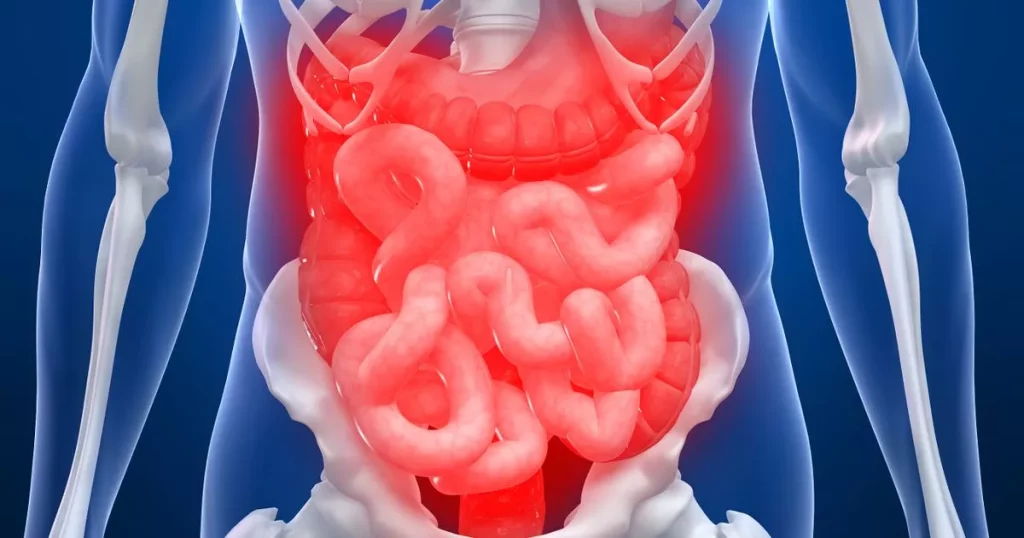More than half a million people in the UK have inflammatory bowel disease (IBD), the two main forms of which are Crohn’s disease and ulcerative colitis, affecting at least seven million people worldwide.
Living with IBD is not easy – the inflammation is unpredictable and comes suddenly, causing intense pain and traumatic trips to the bathroom.
It can become a symptom that never goes away, with people complaining day after day about the fear that something they eat might trigger an attack.
More than half a million people in the UK have inflammatory bowel disease (IBD), the two main forms of which are Crohn’s disease and ulcerative colitis, affecting at least seven million people worldwide.
It occurs when the immune system attacks the intestine, causing a variety of debilitating symptoms, from abdominal pain and weight loss to diarrhea and bloody stools. Medications such as steroids can ease symptoms, but some patients may need surgery to remove part of their intestine.
But now, researchers at London’s prestigious Francis Crick Institute have given hope to millions of people around the world by discovering a key cause of IBD and several other immune disorders that affect the spine, liver and arteries — and this “cause” can be treated with a drug that is already in use.
“What we found was one of the very central pathways that goes wrong in inflammatory bowel disease, and it was kind of like the Holy Grail,” says group leader James Lee, PhD, of the institute. Dr. Lee and his team found a section of DNA that acts like a volume control for nearby genes.
This “enhancer” is located in immune cells called macrophages, where it increases the risk of IBD by turning up a gene called ETS2. And the researchers found that ETS2 is central to the inflammatory behavior of macrophages and their ability to damage the gut in IBD.
“The central driver of this pathogenic process has been long sought, but now we’ve landed on it,” said Dr Lee, and the same mechanism is thought to drive autoimmune diseases such as ankylosing spondylitis, which causes inflammation of the spine and joints and affects about 1 in 1,000 people worldwide, as well as rarer autoimmune diseases that affect the liver and arteries.
The good news is that several known anti-cancer drugs have been found to reduce inflammation in intestinal samples from patients with inflammatory bowel disease in laboratory tests. Ruth Wakeman, from Crohn’s & Colitis UK, said: “Crohn’s and colitis are complex, lifelong diseases and there is no cure, but studies like this help to answer some of the big questions about their causes. This research is a really exciting step towards the possibility of a world without Crohn’s and colitis.”


